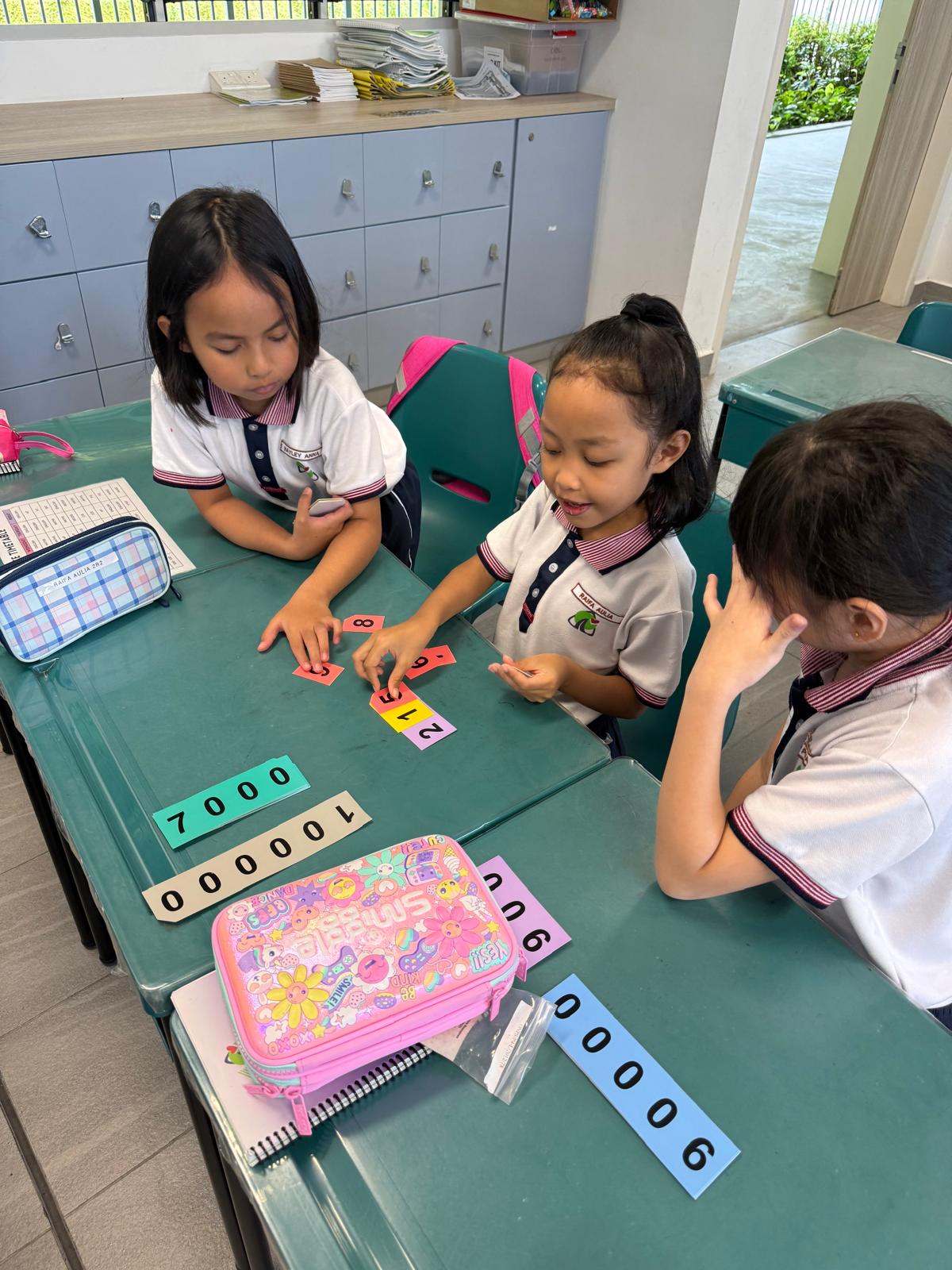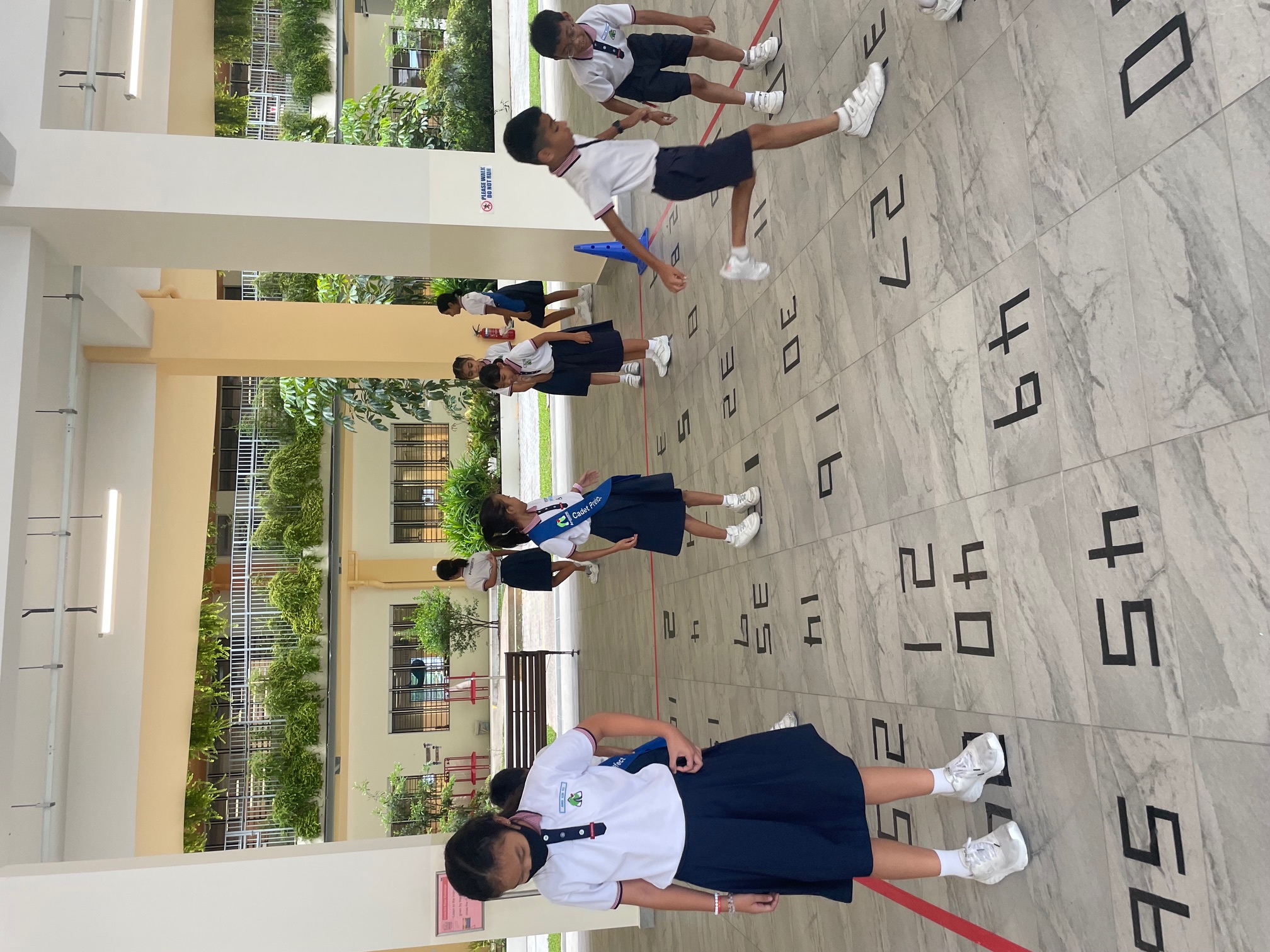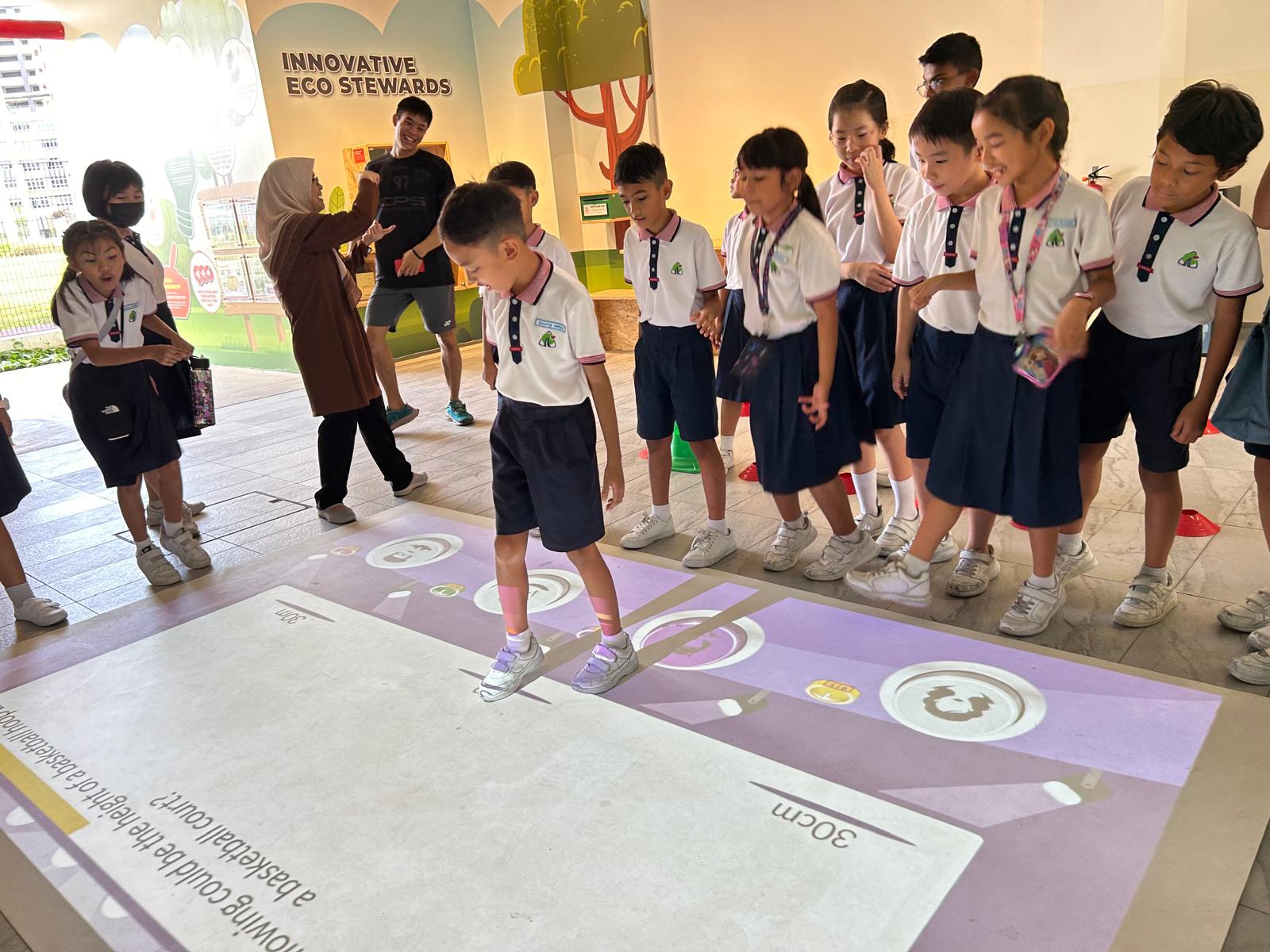Mathematics
Learning Outcomes
At Angsana Primary School, the Mathematics department is committed to providing students with varied opportunities to learn concepts, skills and attitudes to become competent problem solvers. Not only do we strive to make learning fun for our students, we also promote the development of 21st century competencies which will serve them well in the volatile, uncertain, complex and ambiguous (VUCA) future.
Our Guiding Principles
Mathematics teachers in Angsana Primary School are guided by the following principles:
1. Differentiating Teaching and Learning is our Philosophy
Each child is unique and learns differently. We vary our instruction and included hands-on activities and technology in our lessons to allow our students to explore, reflect and evaluate their own understanding and develop problem-solving skills.
2. Reasoning, Communication and Connections is our Cornerstone
As we strive to nurture our students to be critical thinkers and effective problem solvers, opportunities are provided for our students to express Mathematical ideas and arguments precisely, concisely and logically.
Main Pedagogy
C-P-A Approach
The Concrete, Pictorial and Abstract (CPA) approach is a system of learning that uses physical and visual aids to build a child’s understanding of abstract topics. Students are introduced to a new Mathematical concept through the use of concrete manipulatives likes fraction discs, linking cubes, number discs etc. to solve the problems. When students are comfortable solving problems with physical aids, they are given problems in pictorial representations which include drawings, graphs or diagrams for the students to read and interpret the information. In the abstract phase, students use symbolic representations such as numbers and letters to solve problems.

Key Programmes
Math Talent Programme
Mathematics Olympiad Training Programme
This programme aims to stretch students with non-routine problems. Students are given opportunities to learn computational thinking processes as they engage in mathematical problem solving. In addition, selected P5 and P6 students who demonstrate the disposition and ability to pursue the learning of Mathematics at a higher level attend a series of training sessions after school hours to learn different approaches to solve higher order thinking questions such that their learning is not restricted to the confinements of the syllabus. Students are then given the opportunities to represent the school in selected Mathematics Olympiad competitions.
Excellence 2000 (E2K) Mathematics Programme
E2K is an inquiry-based programme for P4 and P5 students who demonstrate interest and ability in Mathematics. It aims to develop Mathematical thinking, communication and collaboration skills through the use of stories, games and puzzles to solve challenging Mathematics problems.
Math Activities
GEM@Recess
Games and Engagement through Mathematics (GEM) @ Recess aims to inculcate the love for Mathematics in all our students by engaging them in fun activities through games and hands-on competitions.


P1-P2 Supermarket Trail
The Supermarket Trail is an engaging and educational activity designed to teach students essential financial literacy skills in a hands-on way. Set up as a mock supermarket within the school, this interactive experience allows students to practice budgeting, making smart purchasing decisions, and understanding the value of money in a real-world context.
P5-P6 Learning Journey
Through authentic learning experiences in and beyond classroom, our students are able to appreciate and apply what they have learnt in Mathematics in real-life contexts.
Support Programmes
Early intervention programmes are provided to help support identified students address misconceptions, consolidate and reinforce their learning as well as build their confidence in learning Mathematics.
Learning Support for Mathematics (LSM) Programme (P1 and P2)
Learning Support for Mathematics (LSM) is a resource-based support aimed at providing intervention for selected Primary 1 and 2 students who require more individual help in developing their numeracy skills. Through small group setting, students are able to benefit from the various hands-on strategies to help them in Mathematics.
Improving Confidence and Achievement in Numeracy (ICAN) Programme (P3, P4)
The programme aims to raise confidence and improve Mathematics achievement of identified students who are weak in numeracy skills and faced challenges in the subject. Intervention strategies and models that are guided by research to tackle the 4 key issues of learning gaps, language, motivation and memory are deployed. The lessons follow the FREMC structure – Factual Fluency, Readiness, Engagement, Mastery and Consolidation.

